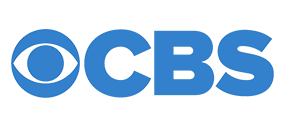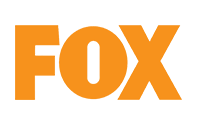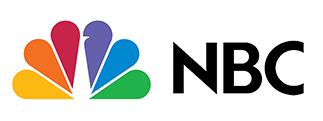Solutions vs Answers: Making The Distinction
- Vince Morales, MPS, MA, MCPC
- Oct 23, 2019
- 5 min read
Many clients go to a certified professional life coach wanting answers. But, Life Coaches don’t have answers. They have questions. As a certified Life Coach, I bring lots of questions to my coaching sessions, even polarizing questions.

Sometimes if a client is seeking an answer, I encourage them to ask the question 10 times and see what answers they come up with. You may find it interesting to watch how that dynamic unfolds.
"Solutions" vs "Answers"

But, not so fast. I wouldn’t be an objective coach if I didn’t coach my clients to make distinctions between “solutions” and “answers”. This difference always turns out to be critical revelation towards their breakthrough. My clients hire me and I best serve them by asking honest, tough questions. Simply because I am on my client’s side. I stand in their corner and my goal is their breakthrough. My goal is not their family, their relationships, ministries, or anything else…my goal is my client and my client alone. My clients can take what they learn and focus on the respective areas of their lives because of experiencing their breakthrough. They are better positioned to influence the respective streams of their lives.
You have your "solutions" and "answers" already within you...but which one do you reach for?
As a Coach, I don’t have the solutions for my clients, nor do I pretend to. I may have some answers, but I find that most people need solutions versus answers. My solutions may not be the best for my client. This is an important distinction to make and I always set out to help my clients make those distinctions for themselves. The solution that best served me likely won’t serve my client or their situation.
Most of my current clients find Solution already within them ;) Most times they just needed help asking the right questions. Asking the right questions often requires identifying and assessing the core of the matter or problem. Not understanding the core of the matter allows plenty of room for the wrong questions to be asked. Ultimately, they arrive at answers to the wrong questions to a misidentified problem or matter. A misdiagnosis at this critical point can throw you far off track. Even more difficult for many people is admitting they are off track and making the adjustments necessary to get back on track.
"Asking the wrong question will get you the wrong answer. Any question will get you any answer. Asking the right questions will get you the right answers." - Vince Morales
If you recently received a promotion from work that is going to require you to move from Phoenix, AZ to Miami, FL, the answer to your current situation is to move to Miami. The answer, though simple, doesn't give you enough details. You are going to need a solution path for determining how to achieve your answer. The solution to the problem is greater than the answer. Solutions can also be more complex than answers. Microwave popcorn is a great answer to feeling hungry. But if you are looking for healthier eating, watching your weight, needing to work on cholesterol issues, the solution is going to require more thought and intention than simply reaching for the microwave popcorn.
Welcome to the "No Spoons Allowed" Zone
My job as a coach is to ask my clients the questions that will help them discover the

solutions themselves. I never intend to do anyone’s thinking for them. The other reason this is so powerful is that there is a vast difference between telling someone to do something and that person deciding to do it themselves. I recently saw a movie where someone was attempting to leverage a particular power but they were constantly limited in functionality because they were doing it under the instruction and direction of someone else. When they made the decision to engage by their own free will, they engaged at a whole new level. A new identity was revealed. In addition, they received enlightenment to this true identity and functioned in a way that was totally off the charts.
If clients discover their answers or solutions, they are much more likely to take action and engage in a powerful way.
Like children, if people are "spoon-fed" and told what to do, they never learn to think for themselves. So, any coaching done with me is a "no spoons allowed" zone.
They are relieved of responsibility for their lives and even if they were presented with the "right" answer they are not likely to follow through, especially if it means moving out of their comfort zone. Every answer discovered carries a sort of empowering “revelation and illumination”. If the answer is “spoon-fed”, execution on that answer will be minus the empowering “revelation and illumination”.
Even a small thing like someone writing down their own tasks rather than the coach writing it down for them can make a major difference to the ownership my client feels about the actions they need to take.
But this all depends on a client having the right questions offered to them. The right questions help my clients and help them shift their perspectives. Asking the right questions can be key to developing the eyes to see on a matter. I have learned in working with my clients that their perspective can shift when their problem or matter is correctly assessed and identified followed up with the right questions being asked.
Aha moments

With some clients, some questions I have aggressively addressed at length is: 1) What is your purpose here? 2) What value do you want to honor here? 3) What’s underneath the judgment?
But when these questions are asked, we have to discern their paradigm by which they are answering these questions. I even consider their enculturation, the revelation and illumination they already possess, professional, educational experiences, and even religious dogmas. I tap into people influences (family, pastor, co-workers, classmates, friends, etc) in their lives as these all affect their current paradigms. I use these moments to identify “sacred cows” that have contributed to their self-imposed or others-imposed limitations OR limiting beliefs.
According to Jim Rohn, you're the average of your five closest friends. If this is true, I encourage my clients who are actively assessing their circle of friends to make sure they to put themselves in an environment that pulls the best out of them. I like to make a note of a client’s regular company, those they “hang out” with. If I know my client hangs around “chickens”, this explains to me why they won’t step off and soar like eagles. So guess what, I have to get my client to identify the presence of "chickens" in their lives…by asking them the right questions. But I have to make sure they not only know what a “chicken” looks like in their life, but what an “eagle” looks like.





.png)





